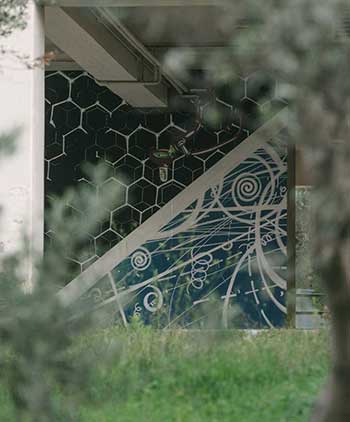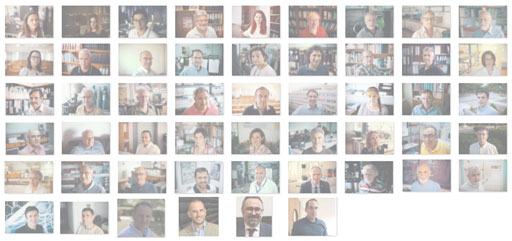- Τμήμα
Διοίκηση

- Προσωπικό
- Σπουδές
Προπτυχιακά
Διπλωματικές Εργασίες
Μεταπτυχιακά
Διδακτορικό Δίπλωμα (PhD)
- Γενικές Πληροφορίες
- Νέες Αιτήσεις
- Κανονισμός
- Μαθήματα
- Προφορική Παρουσίαση
- Έρευνα
- Υποστήριξη Διατριβής
- Προηγούμενες Διατριβές
- Πρόγραμμα Εξετάσεων
Μεταπτυχιακό Πρόγραμμα (MSc)
Διατμηματικό ΠΜΣ (MSc)
- Φοιτητές
- Απόφοιτοι
- Έρευνα

Ερευνητική Δραστηριότητα στο ΤΧΜ
- Νέα & Εκδηλώσεις

Ανακοινώσεις
Exploring the Selective Activation of Light Alkanes and CO2 in Tandem: A Spectrokinetic Perspective
Τίτλος Παρουσίασης: Exploring the Selective Activation of Light Alkanes and CO2 in Tandem: A Spectrokinetic Perspective
Κατηγορία Συμβάντος: Πρόγραμμα Σεμιναρίων Τμήματος (Webinars)
Ονοματεπώνυμο Ομιλητή: George Tsilomelekis
Προέλευση Ομιλητή (Affiliation): Department of Chemical and Biochemical Engineering at Rutgers, The State University of New Jersey, USA
Αίθουσα: Βιβλιοθήκη "Αλκιβιάδης Χ. Παγιατάκης"
Ημερομηνία:
Δευ, 01 Ιουλ 2024,
Ώρα:
12:30 - 14:30
Δια ζώσης παρουσίαση του ομιλητή από την αίθουσα σεμιναρίων με διαδικτυακή μετάδοση
Διεύθυνση Διαδικτυακής Μετάδοσης: Meeting ID: 992 5939 1841, Passcode: 689583
Περίληψη
Carbon dioxide has been highlighted in recent years as a promising mild oxidant in the oxidative dehydrogenation (ODH) of low molecular weight alkanes over different metal oxide-based catalysts. Using CO2 as an alternative oxidizing agent has been shown to effectively suppress the undesirable combustion of the alkane under ODH conditions. In addition, its potential benefit for in-situ removal of carbon deposits via the reverse Boudouard reaction has been also underscored in the open literature. While oxygen assisted ODH involves a Mars van Krevelen mechanism, in ODH with CO2 it is shown that usually, olefin formation occurs mainly through a tandem scheme where direct alkane dehydrogenation is coupled with the reverse water gas shift (RWGS) reaction. However, the role of CO2 on the mechanism for the formation of olefins is still in question as different reaction pathways involving CO2 participation over supported metal oxide catalysts may occur. Since these pathways affect catalyst reactivity, we will discuss a combined approach where vibrational spectroscopy is coupled with catalytic measurements to provide insights into the role of CO2 on metal oxide stability.
Σύντομο Βιογραφικό Ομιλητή
Dr. Tsilomelekis received his Diploma in Chemical Engineering (2006), Masters specialized in Energy and Environment (2011) and PhD in Chemical Engineering (2011) from the University of Patras, Greece. His doctoral research focused on unravelling the molecular structure and reactivity of supported transitional metal oxide catalysts by coupling Operando Raman/FTIR spectroscopies with isotopic exchange experiments. In 2012, he joined the Chemical and Biomolecular Engineering Department at the University of Delaware as a postdoctoral researcher in the Catalysis Center for Energy Innovation (CCEI) under the direction of Prof. Dionisios G. Vlachos where he focused on addressing the critical topic of solvent selection in biomass processing. In 2015, he joined the Department of Chemical and Biochemical Engineering at Rutgers, The State University of New Jersey as an Assistant Professor, where he presently serves at the rank of Associate Professor. Dr. Tsilomelekis’ research focuses on the implementation of spectroscopic methods under realistic reaction conditions (Operando spectroscopy) toward understanding complex catalytic reactions in the broad field of the conversion of renewable and alternative energy sources. His interdisciplinary research approach is centered around the fields of energy, catalysis, reaction engineering, molecular spectroscopy and material science towards the development of novel structure-reactivity relationships. He has published more than 40 research articles in peer-reviewed journals. He is the recipient of the NSF/CAREER award as well as the Doctoral New Investigator award from the ACS/Petroleum Research Fund.



